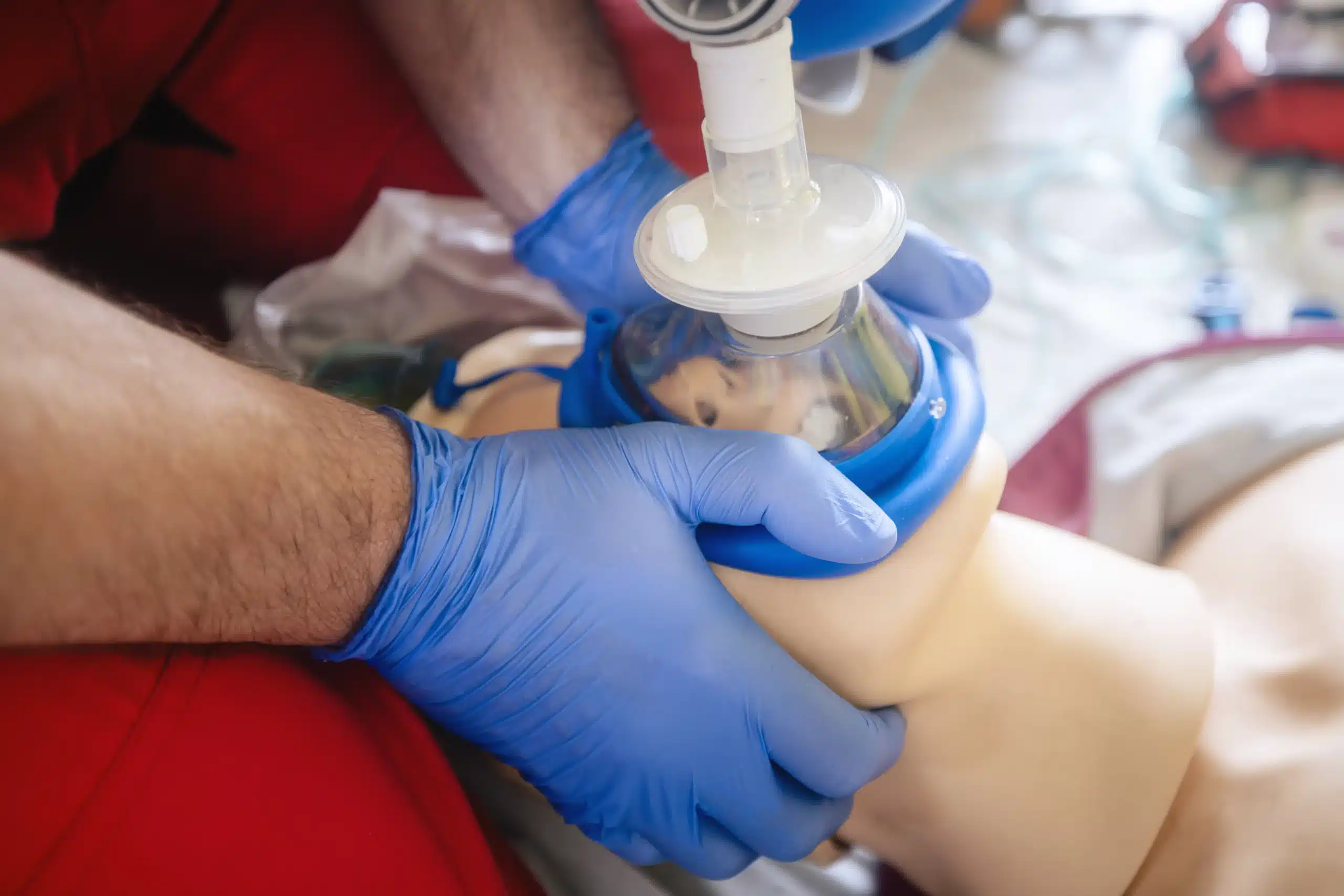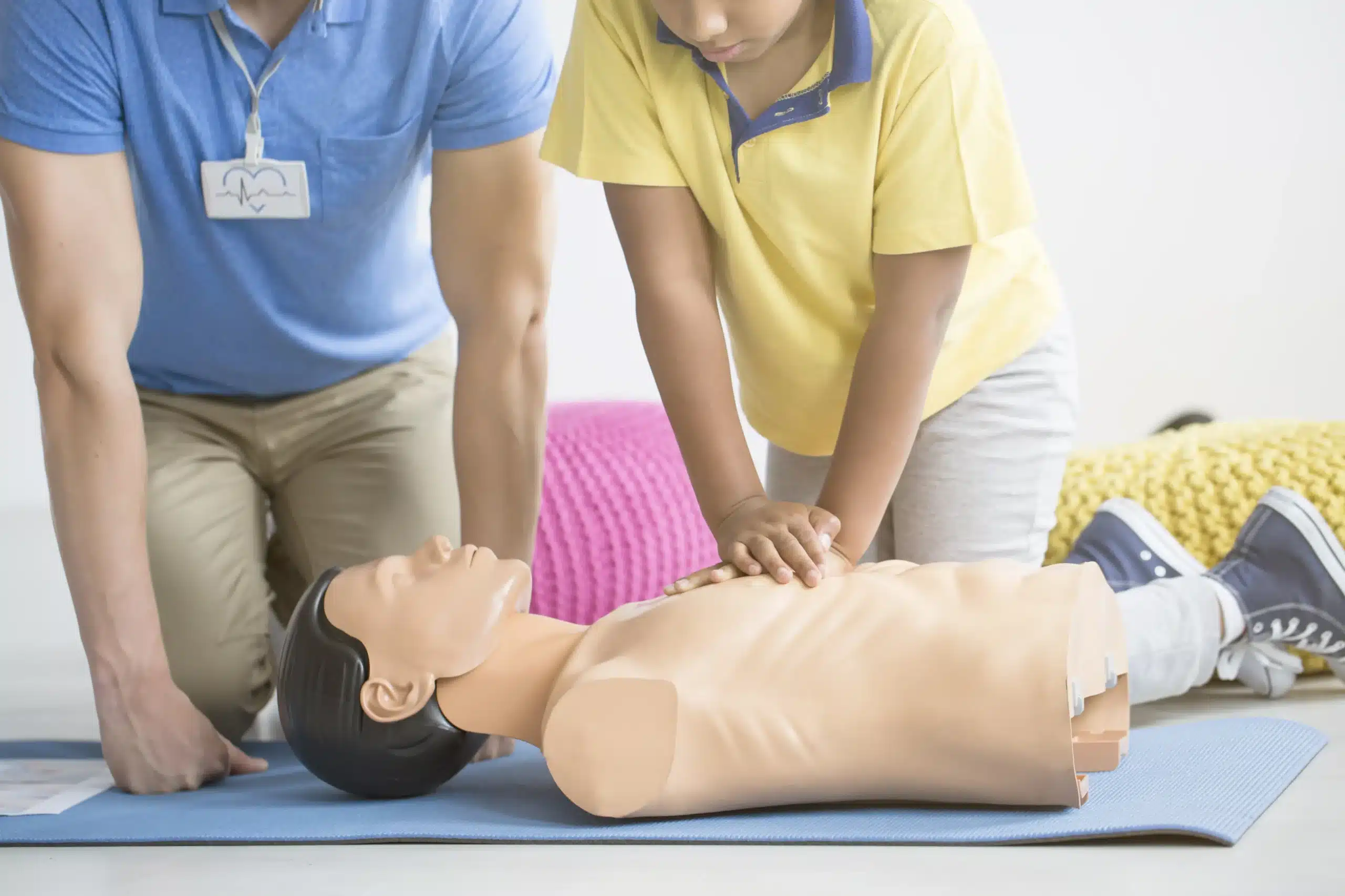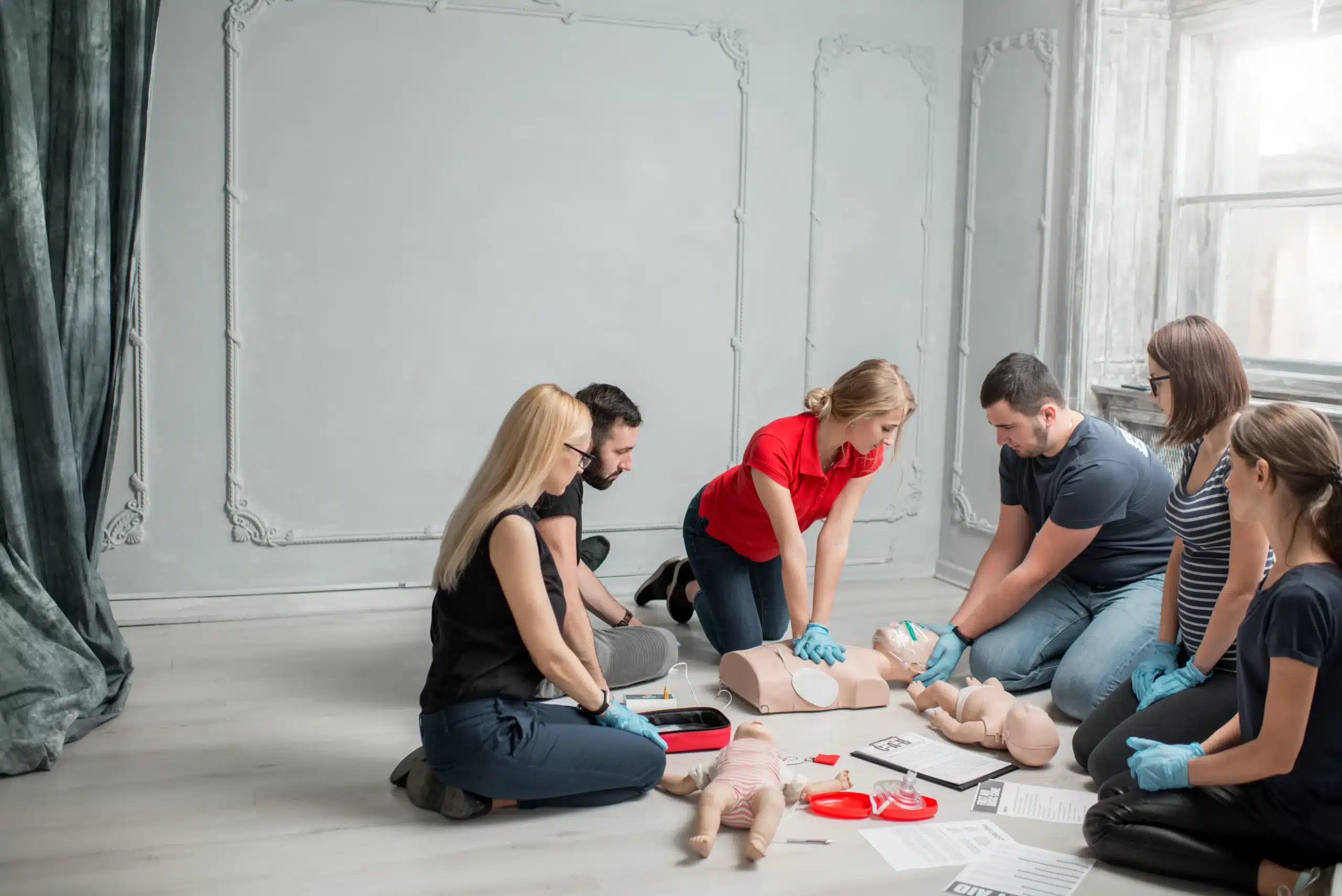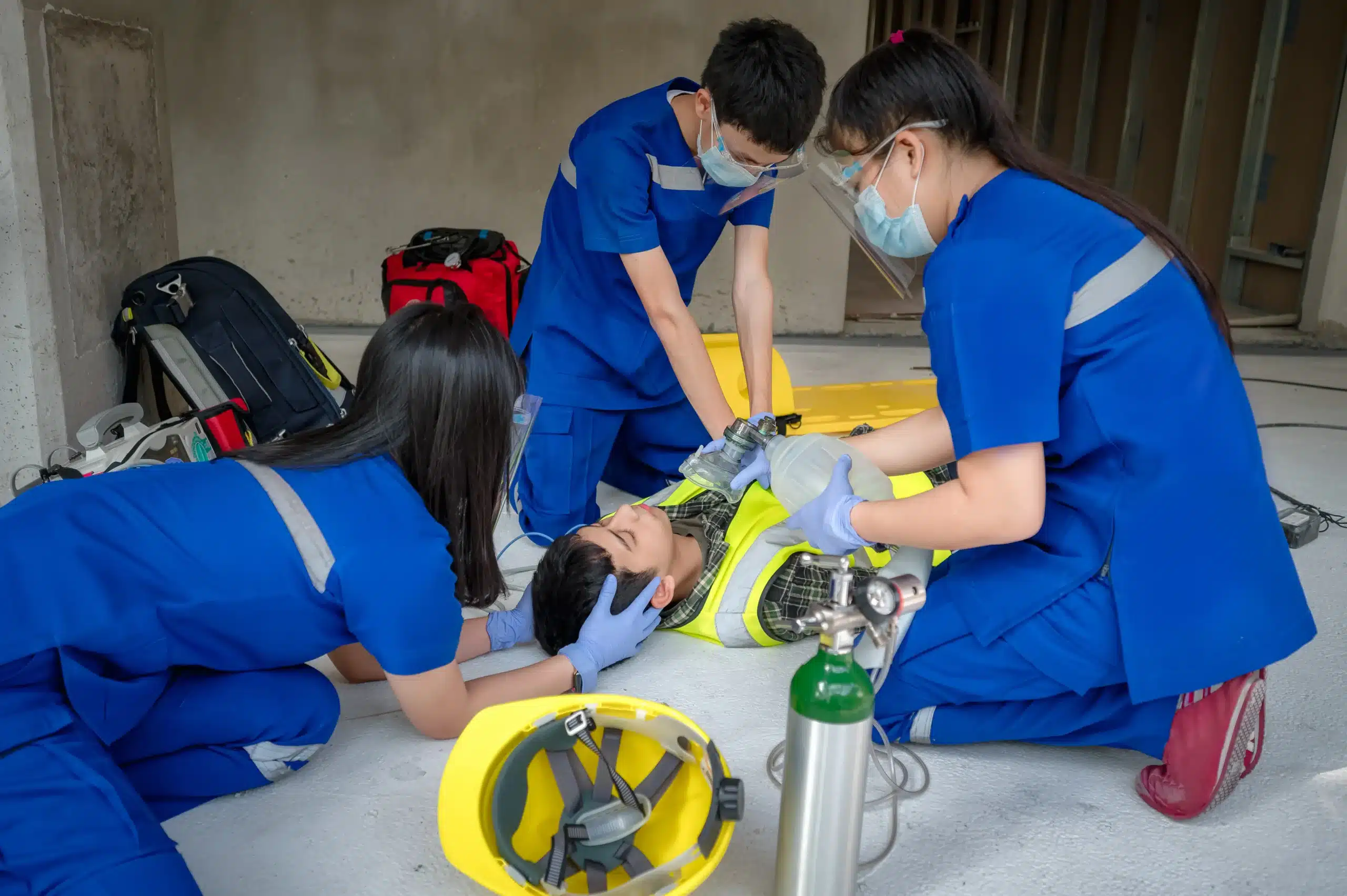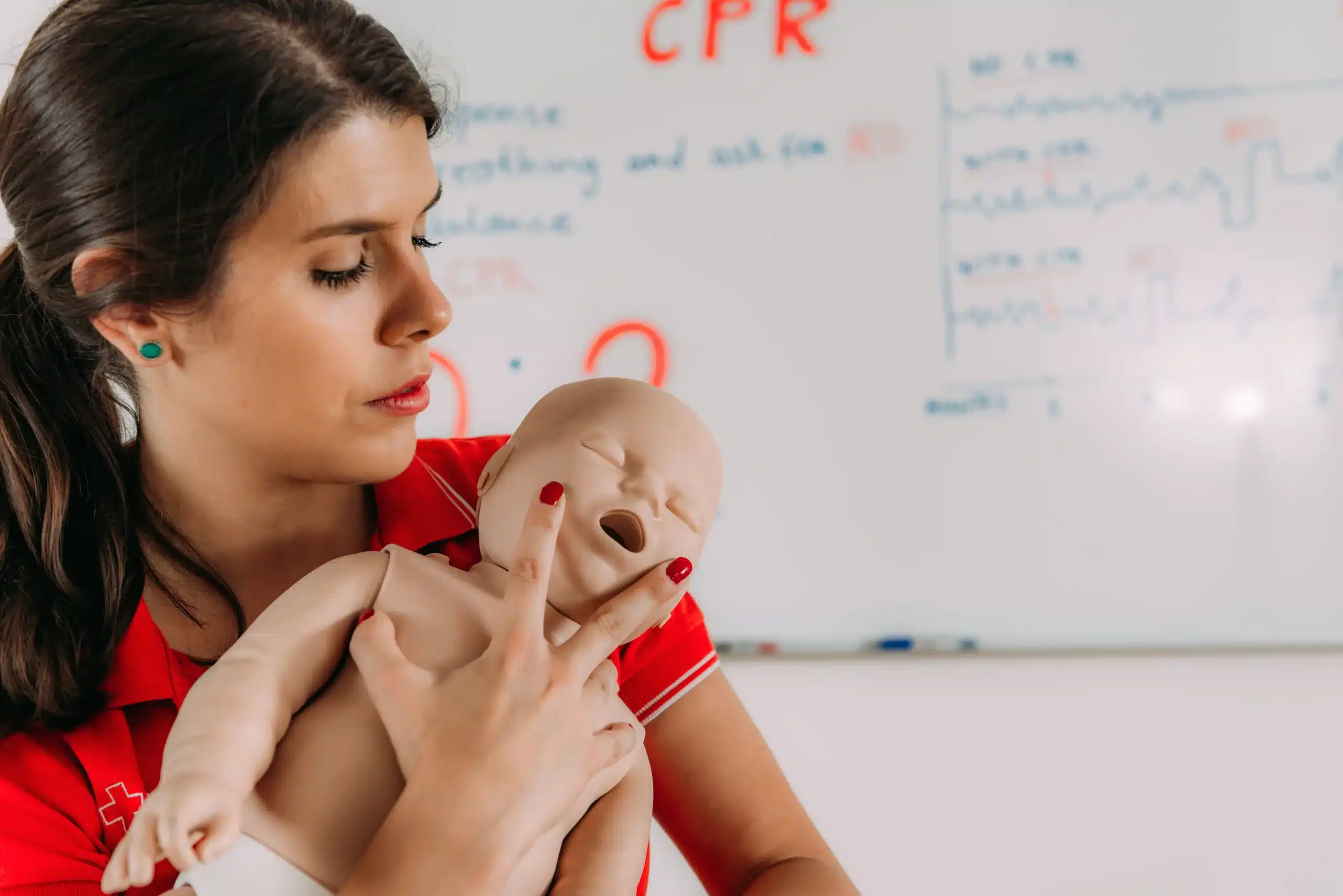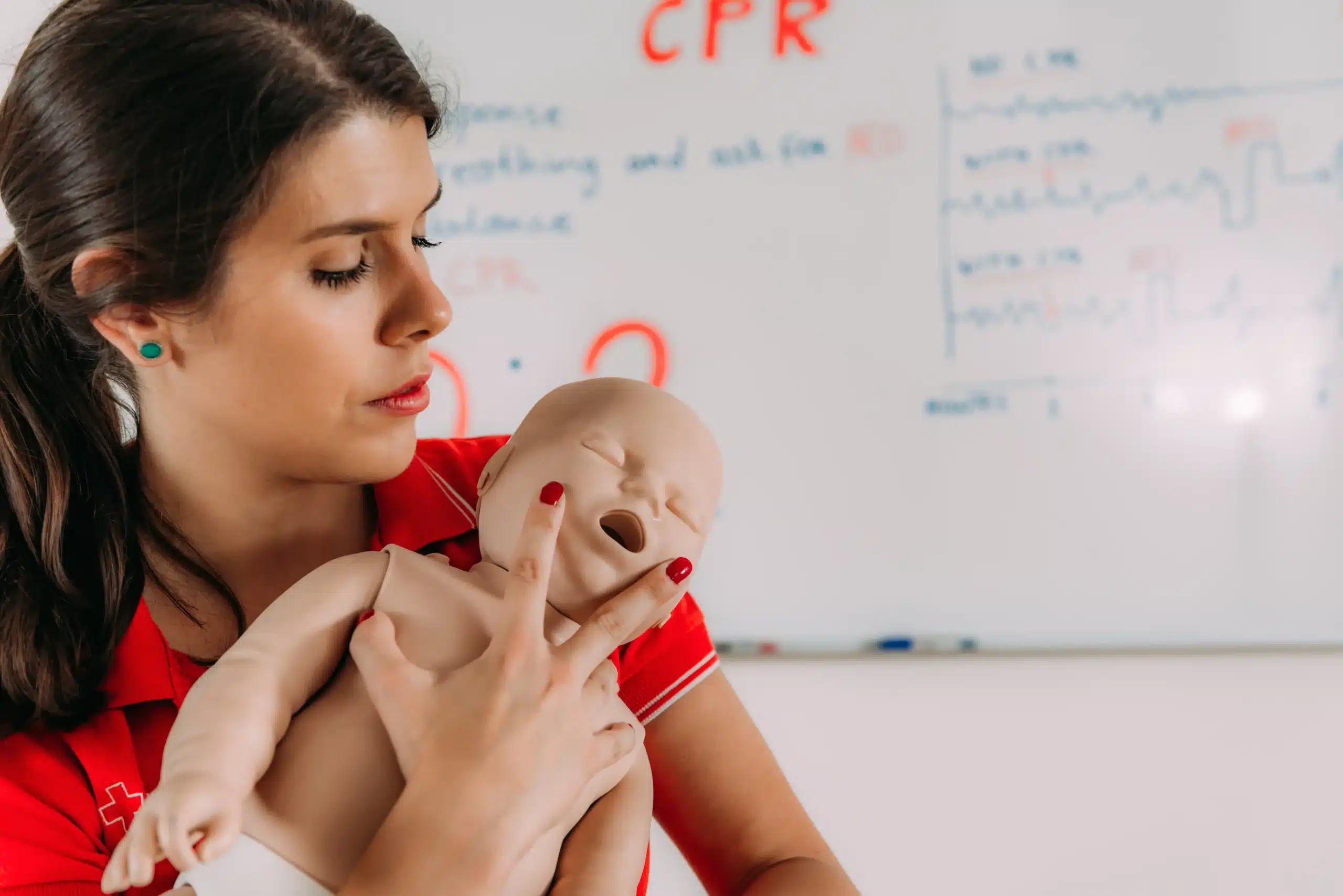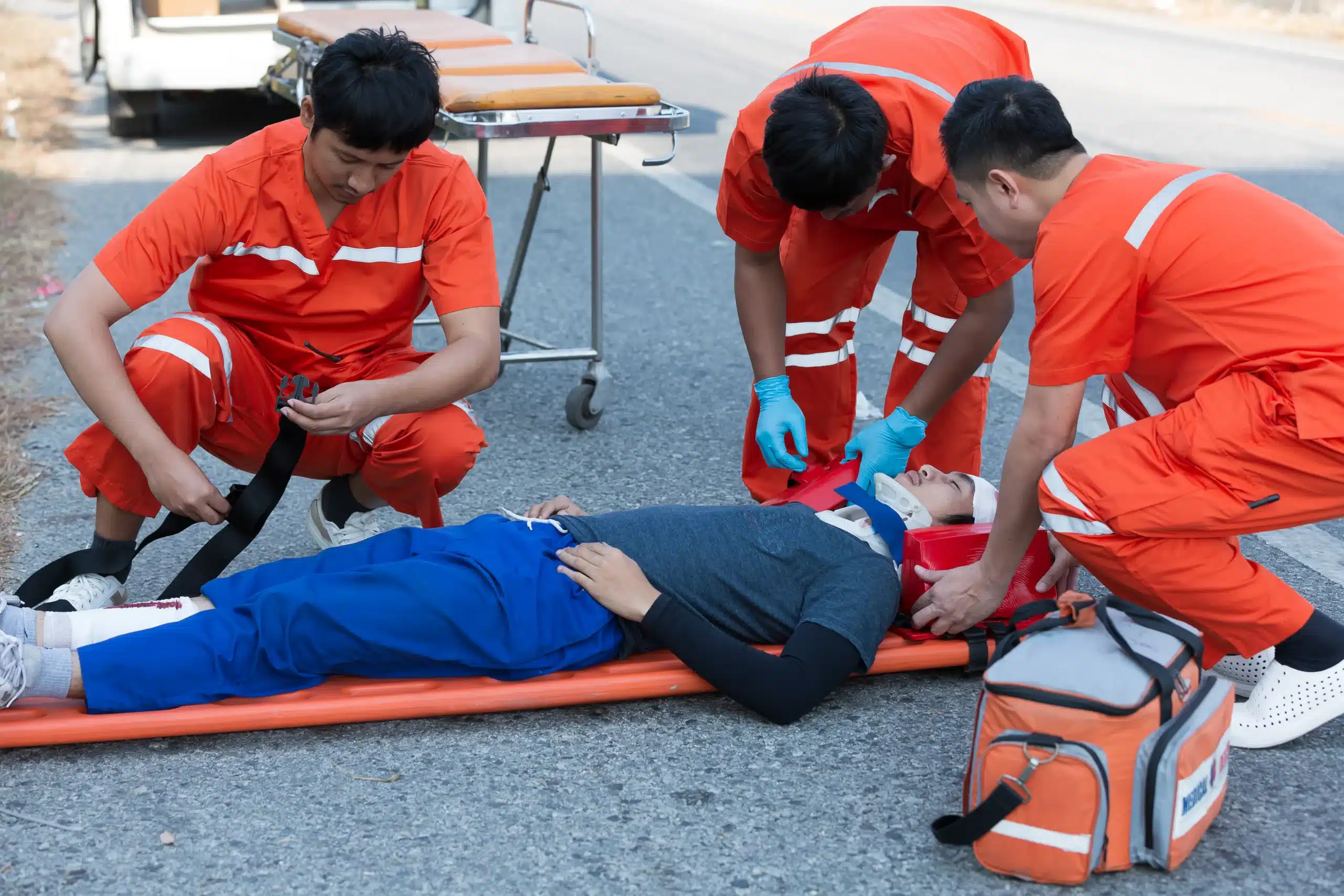As parents, caregivers, or anyone working with children, we hope we never face a medical emergency. But being prepared can make all the difference if one arises. Knowing how to respond effectively can bring immense peace of mind. This is where pediatric CPR and first-aid training comes in. This blog post will guide you through everything you need to know about finding and completing pediatric CPR and first-aid certification in Rancho Cordova, equipping you with the skills and confidence to act quickly and effectively in emergencies involving children. We’ll cover the importance of this training, the various courses available in Rancho Cordova, how to choose the right class format, what to expect from the course content, and how to register. Let’s get started so you can be prepared to provide essential care when it matters most.
Key Takeaways
- Be prepared for pediatric emergencies: Learning pediatric CPR and first aid equips you with the skills to confidently handle situations ranging from minor injuries to life-threatening events. This knowledge allows you to provide immediate care, potentially making a significant difference in a child’s outcome.
- Find the right training program: Explore various options, including in-person classes, online courses, and blended learning, to find a program that suits your learning style and schedule. Consider factors like instructor qualifications, course content, and the reputation of the training provider.
- Certification matters: A recognized certification, such as one from the American Heart Association or the American Red Cross, validates your skills and knowledge. Ensure your chosen course meets any required standards and remember to stay up-to-date with renewal requirements.
What is Pediatric CPR and First Aid?
What is Pediatric CPR?
Pediatric CPR is cardiopulmonary resuscitation adapted for infants and children. Because their bodies are different than adults, CPR for kids requires modified techniques. It’s crucial to know these differences to respond effectively during a pediatric emergency. This specialized training covers rescue breathing and chest compressions, adjusted for a child’s smaller size and unique physiology. Learning pediatric CPR empowers you to act quickly and confidently if a child’s breathing or heartbeat stops.
Essential First Aid Skills for Children
First aid for children complements CPR training and covers a broad spectrum of injuries and emergencies. Solid first-aid training gives you the skills to handle common childhood injuries like cuts, burns, and fractures. It also teaches you how to recognize and respond to choking, a serious risk for young children. Being prepared for these common incidents can significantly reduce harm and protect a child’s well-being until professional medical help is available. Knowing how to assess an emergency, provide basic care, and determine when to seek advanced medical assistance is invaluable for parents, caregivers, and anyone working with children.
Why is Pediatric CPR and First Aid Training Important?
Knowing how to respond to a medical emergency involving a child is a powerful skill. Pediatric CPR and first aid training empowers individuals to confidently handle such situations, potentially saving lives and minimizing harm. From seemingly minor incidents like cuts and scrapes to more serious emergencies like choking or cardiac arrest, this training provides the knowledge and skills necessary to react swiftly and effectively.
Protect Children’s Lives
Children are naturally curious and active, which unfortunately makes them prone to accidents. Equipping yourself with pediatric first aid and CPR skills allows you to provide immediate care in the crucial moments before professional medical help arrives. This rapid response can significantly impact a child’s outcome, especially in life-threatening situations. Whether it’s administering CPR, stopping bleeding, or stabilizing a fracture, your actions can make all the difference. Even seemingly minor injuries benefit from prompt and proper first aid, preventing complications and promoting faster healing. Professional CPR training offers courses in standard first aid, CPR/AED, and specialized areas like Pediatric CPR and First Aid. This comprehensive approach ensures you’re prepared for a wide range of emergencies.
Legal Requirements for Childcare Providers
In California, licensed childcare providers are required to have pediatric first aid, CPR, and AED certification. This requirement reflects the understanding that childcare professionals are responsible for the safety and well-being of the children in their care. These certifications demonstrate a commitment to providing a safe environment and meeting established health and safety standards. California childcare providers can find training that meets these requirements, covering essential skills for responding to emergencies involving infants and children. Having these certifications not only fulfills legal obligations but also provides parents and guardians with peace of mind, knowing their children are in capable hands. For medical professionals working with children, PALS certification provides advanced life-saving skills for pediatric emergencies.
Pediatric CPR and First Aid Classes in Rancho Cordova
Finding the right pediatric CPR and first aid class is crucial for parents, caregivers, and professionals working with children. Rancho Cordova offers several reputable training providers. Let’s explore some of your options:
Carmichael CPR Classes
Carmichael CPR Classes offers a range of pediatric CPR and first aid courses designed to give caregivers essential lifesaving skills. They emphasize the importance of being prepared for emergencies involving children, and their training builds confidence in participants so they can respond effectively. Their connection to the American Heart Association RQI program ensures efficient and current certification. Serving Carmichael, Rancho Cordova, and Fair Oaks, they are a convenient option for local residents.
Pro CPR
Pro CPR offers specialized pediatric CPR and first aid certification tailored for parents, babysitters, and childcare providers. Their classes focus on the unique needs of infants and children, covering essential techniques and emergency response strategies. This targeted approach makes their training especially helpful for those who regularly care for young children.
In-Home CPR
In-Home CPR offers the convenience of pediatric CPR and first aid training at your home or workplace, perfect for busy families and professionals. This personalized instruction in a comfortable setting makes learning easier. Their flexible scheduling also helps fit this important training into busy schedules.
NorCal Emergency Medical Training
NorCal Emergency Medical Training offers accessible pediatric CPR and first aid classes designed for people without medical backgrounds. They empower parents and caregivers with the knowledge and skills to handle emergencies involving children. Their focus on accessibility makes them a great option for anyone wanting to learn these vital skills.
Safety Training Seminars
As an American Heart Association Training Center, Safety Training Seminars provides high-quality pediatric CPR and first aid courses in the Rancho Cordova area. Their curriculum follows the latest AHA guidelines and techniques, ensuring participants receive current and effective training for responding to pediatric emergencies.
American Red Cross
The American Red Cross offers a comprehensive Pediatric First Aid/CPR/AED instructor course, a key certification for those who want to teach these skills. This thorough training covers vital information on responding to emergencies involving children, making it a valuable resource for parents, caregivers, and aspiring instructors.
Choose a Class Format and Learning Option
Finding the right pediatric CPR and first aid class means choosing a format that fits your learning style and schedule. Let’s explore some popular options:
In-Person Training
In-person training offers hands-on learning, crucial for mastering skills like pediatric CPR and first aid. You’ll practice techniques on mannequins and get real-time feedback from certified instructors. This approach is especially beneficial for kinesthetic learners. In-person classes cover everything from basic life support to handling medical emergencies at home or in the workplace. For more information on in-person training options in Rancho Cordova, check out this helpful guide.
Online Courses
Juggling a busy schedule? Online courses offer a flexible way to learn pediatric CPR and first aid at your own pace. You can access course materials and complete modules whenever and wherever it’s convenient. Providers like NorCal CPR offer online options. Keep in mind that while online courses are great for learning the basics, they may not offer the same level of hands-on practice as in-person classes.
Blended Learning Approaches
Blended learning combines online learning with in-person skills sessions. You’ll study the course material online at your own pace, then attend a hands-on session to practice your skills with an instructor. This approach offers a comprehensive learning experience and is a great option for those who want flexibility and practical application. In Home CPR offers blended learning options for CPR and first aid classes in Rancho Cordova.
Class Durations
The length of your pediatric CPR and first aid class will depend on the training you choose. First Aid certification classes typically last around 2.5 hours, while CPR/AED classes can range from 2.5 to 3 hours. Combined CPR/AED and First Aid classes usually take between 4.5 to 5 hours. Blended learning formats can also influence the overall timeframe, allowing you to spread out the coursework and skills practice. You can find more details on class durations for Rancho Cordova courses.
Meet Your Instructors and Explore Course Content
When choosing a Pediatric CPR and First Aid class, the instructors’ qualifications and the course content are key factors. You want to learn from experienced professionals and cover the essential skills.
American Heart Association Certified Instructors
Carmichael CPR Classes is a woman-owned AHA Training Center offering various certification courses, including PALS. AHA-certified instructors ensure high-quality training that meets the AHA’s standards. This is especially important if your workplace requires AHA certification.
Healthcare Professional Backgrounds
Many instructors at Carmichael CPR Classes and other reputable training centers have healthcare backgrounds. This real-world experience adds valuable context. Whether you’re a medical professional or a parent, learning from instructors with this experience provides a deeper understanding of pediatric emergencies. PALS training gives you the knowledge and hands-on practice to respond effectively to critical situations involving infants and children.
Skills and Techniques Covered
A comprehensive Pediatric CPR and First Aid course should cover essential skills and techniques. CPR training equips you with skills like performing chest compressions, using an AED, and providing basic first aid. You’ll learn to recognize choking signs and perform appropriate techniques for infants and children. The course will also cover common childhood injuries and illnesses, such as burns, cuts, and allergic reactions. Look for courses offering hands-on practice with mannequins and other equipment to build confidence and competence. First-aid training prepares you for various emergencies, from CPR and AED use to handling injuries. The right course equips you with practical, life-saving skills.
Get Certified and Understand its Value
Getting certified in Pediatric CPR and First Aid isn’t just about acquiring a skill; it’s about gaining the confidence to act quickly and effectively during an emergency. Knowing you have the right training can make all the difference when every second counts. But not all certifications are created equal. Let’s look at some key organizations and what their certifications involve.
American Heart Association (AHA) Certification
The American Heart Association (AHA) is a leader in CPR and First Aid training. AHA certification is widely recognized and respected. Carmichael CPR Classes offers high-quality BLS, ACLS, PALS, CPR, and First Aid training aligned with AHA guidelines. This comprehensive approach ensures you’re prepared for a range of emergencies. AHA certifications typically involve hands-on practice and assessments to confirm your skills.
American Red Cross Certification
The American Red Cross is another well-regarded organization offering CPR and First Aid certification. Their programs, like the First Aid/CPR/AED instructor course, have specific requirements. This structured approach helps maintain a consistent level of training. Check their website for details on course requirements.
Certification Validity and Renewal Process
Certifications expire, so regular renewal is essential. This ensures your skills and knowledge remain current. Check with the certifying organization (AHA, Red Cross, or others) for specific renewal procedures. Staying up-to-date is key to providing effective care.
Register for a Class
Now that you understand the importance of pediatric CPR and first aid, let’s discuss how to register for a class in Rancho Cordova.
Factors to Consider
Before you sign up, think about what you need from your training. First-aid training prepares you for a range of emergencies. From CPR and AED use to handling common injuries, the right course equips you with practical, potentially life-saving skills. Consider whether you need basic first aid or more comprehensive training, including CPR and AED certification. If you’re a childcare provider in California, ensure your chosen course meets the state’s licensing requirements. Also, think about your learning style. Do you prefer hands-on, in-person instruction, or the flexibility of online learning? Each learning method has its own advantages, so choose the format that best suits your needs and preferences.
Registration Process
Registering for a class is usually straightforward. Many providers, including Carmichael CPR Classes, offer online registration through their websites. You can often find a schedule of upcoming classes and choose a date and time that works for you. Some providers, like In Home CPR, also offer classes seven days a week, including evenings, making it easier to fit training into your busy schedule. Don’t hesitate to call the provider directly if you have questions or need help with registration.
Costs and Group Discounts
The cost of pediatric CPR and first aid training varies depending on the provider and the course content. Many providers offer group discounts, a great option if you’re signing up with colleagues or friends. Be sure to ask about any available discounts when you register. Remember, this training provides you with the confidence to help someone in need. It’s a valuable investment.
Prepare for Your Class
Once registered, take some time to prepare. Review any pre-course materials from the instructor. This might include basic anatomy or information about common childhood illnesses and injuries. If your course includes PALS certification, understand that it equips you with life-saving pediatric emergency skills. Whether you’re a doctor, nurse, or paramedic, PALS training provides the knowledge and hands-on practice necessary to respond effectively to critical situations involving infants and children. Arrive a few minutes early to get settled and familiarize yourself with the classroom. Most importantly, come prepared to learn and ask questions. This training is an investment in your ability to provide crucial care when it matters most.
Related Articles
- Pediatric Advanced Life Support (PALS) in Rancho Cordova – Carmichael CPR Classes
- Pediatric CPR & First-Aid Training in Carmichael – Carmichael CPR Classes
- Pediatric CPR & First Aid Classes in Fair Oaks – Carmichael CPR Classes
- Advanced Cardiac Life Support in Rancho Cordova CA
- CPR Certification in Rancho Cordova: Your Guide – Carmichael CPR Classes
Frequently Asked Questions
What’s the difference between adult and child CPR? Child CPR techniques are modified to accommodate a child’s smaller size and different physiology. Chest compression depth and rescue breath techniques are adjusted, and the approach for checking for responsiveness may also differ. Specific training in pediatric CPR is essential to provide safe and effective care.
If I’m CPR certified for adults, do I still need pediatric CPR training? Yes, having adult CPR training is a great start, but it doesn’t fully prepare you for pediatric emergencies. Children have unique physiological differences that require modified CPR techniques. Pediatric CPR training teaches you these specific methods, ensuring you can respond effectively and safely to a child in need.
What if I’m nervous about performing CPR on a child? It’s completely normal to feel apprehensive about performing CPR, especially on a child. That’s why hands-on practice in a supportive learning environment is so important. Qualified instructors guide you through the steps, answer your questions, and help you build the confidence to act quickly and effectively in an emergency.
How often do I need to renew my pediatric CPR and first aid certification? Certification renewal requirements vary depending on the certifying organization, such as the American Heart Association or the American Red Cross. Generally, certifications are valid for two years. Check with your certifying organization for their specific renewal guidelines and procedures.
What if I have a busy schedule and can’t attend a traditional in-person class? Many training providers understand busy schedules and offer flexible learning options. Online courses allow you to learn at your own pace, while blended learning combines online modules with in-person skills sessions. Some providers even offer in-home training, bringing the class directly to you.


